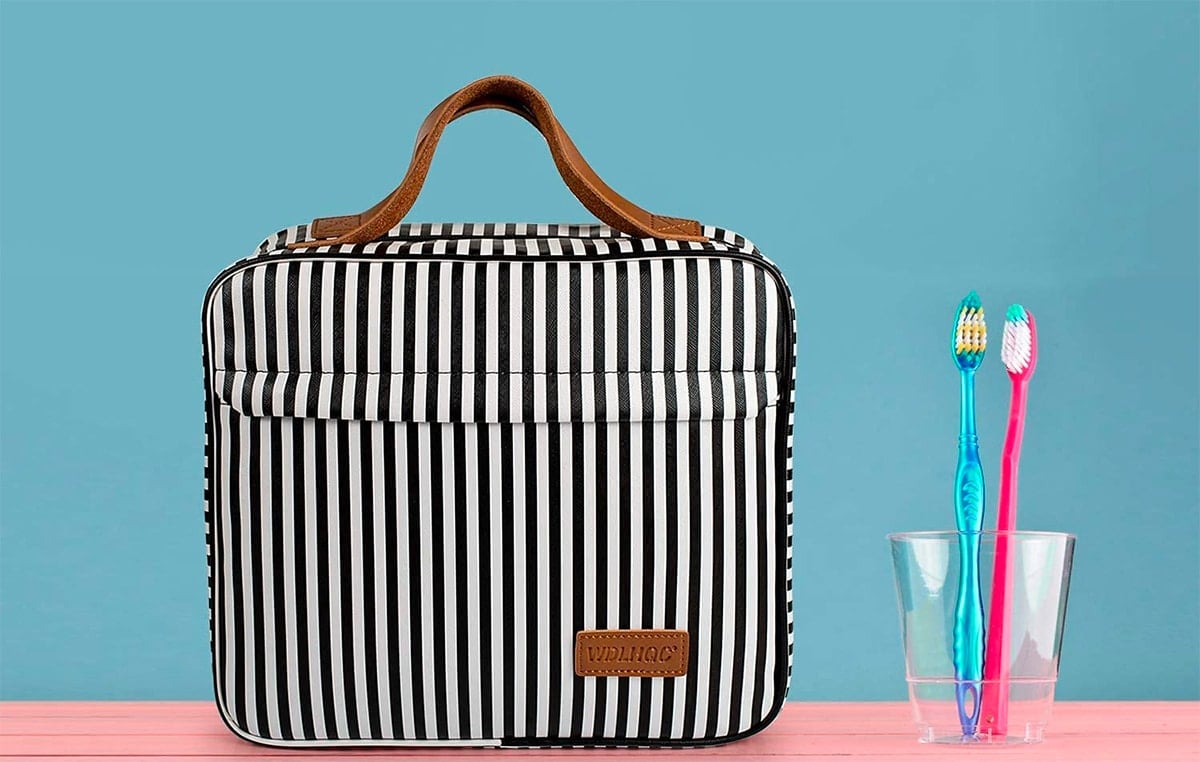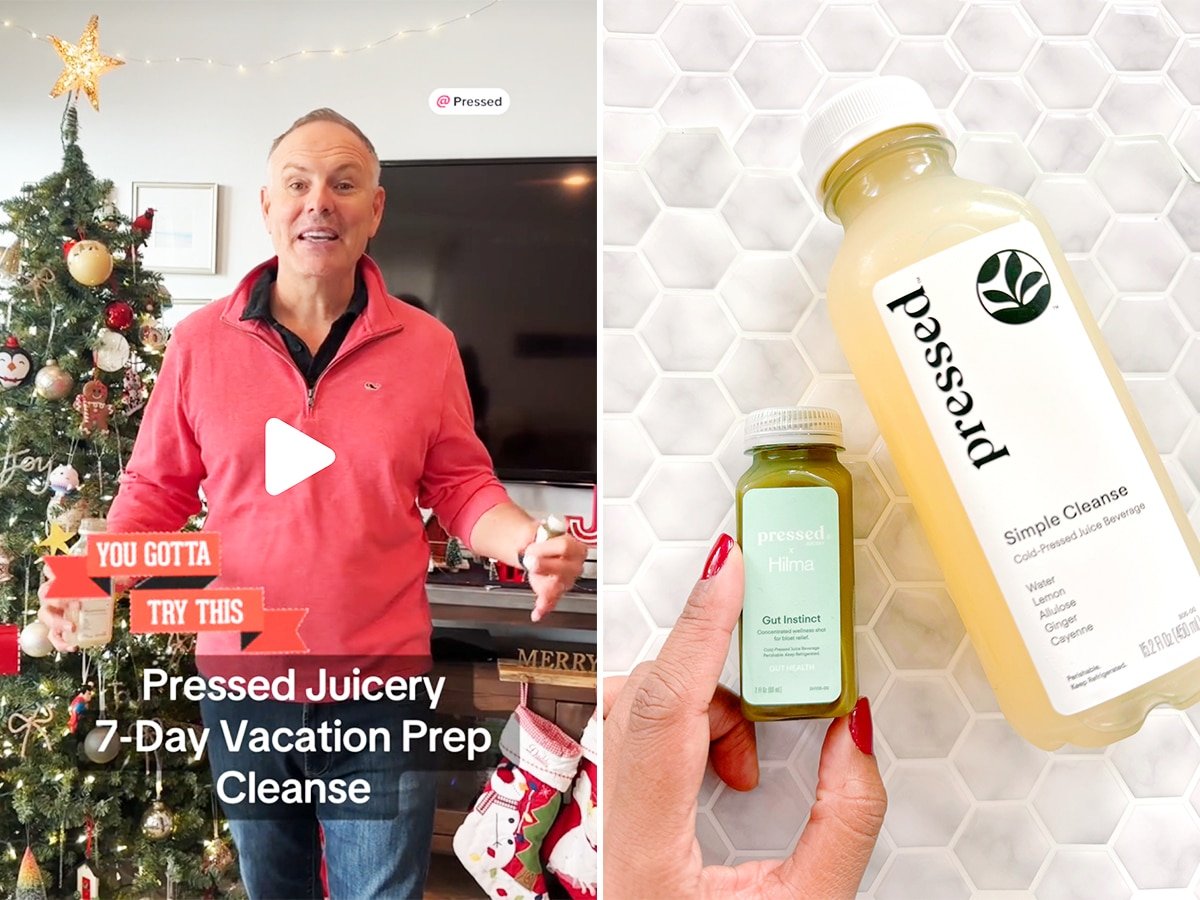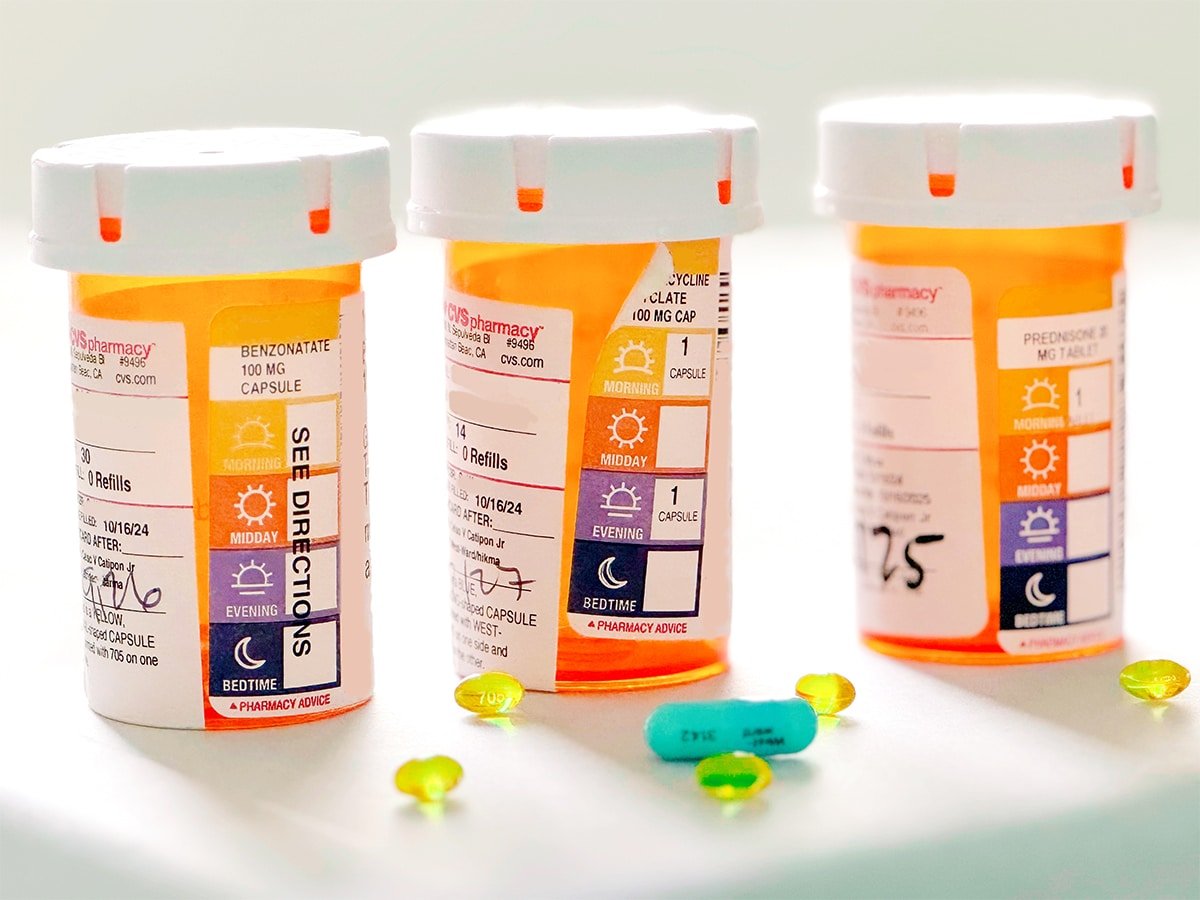 This post contains references to products from one or more of our advertisers. We may receive compensation when you click on links to those products. For an explanation of our Advertising Disclosure, visit this page.
This post contains references to products from one or more of our advertisers. We may receive compensation when you click on links to those products. For an explanation of our Advertising Disclosure, visit this page.
UPDATE: We try to keep you up-to-date on the latest health and travel information pertaining to coronavirus and COVID-19. There’s new information regarding the story below. According to The New York Times, the results of the study cited below “have limited value for the real world” since researchers didn’t recruit any human volunteers. Read the whole story: No, Mouthwash Won’t Save You From the Coronavirus
I was watching the local news late last night with my wife while we were both working on our laptops on the couch (ah, married life) when a story headline caught both of our attentions. We both instantly popped up from our computers. The headline said something about researchers discovering a new way to ‘inactivate’ coronavirus.
Head turner. I know. Here’s the story.
The short story is that researchers from Penn State College of Medicine have discovered that certain oral antiseptics and mouthwashes may be able to inactivate human coronaviruses. They say that clinical trials are still needed to determine whether these products can reduce the amount of virus COVID-19 positive patients spread when talking, sneezing or coughing.
Here are more details. According to their press release, “Craig Meyers, distinguished professor of microbiology and immunology and obstetrics and gynecology, led a group of physicians and scientists who tested several oral and nasopharyngeal rinses in a laboratory setting for their ability to inactivate human coronaviruses, which are similar in structure to SARS-CoV-2. The products evaluated include a 1% solution of baby shampoo, a neti pot, peroxide sore-mouth cleansers, and mouthwashes.
RELATED: Is Airplane Air Really Cleaner Than the Air Inside Your Own Home?
“The researchers found that several of the nasal and oral rinses had a strong ability to neutralize human coronavirus, which suggests that these products may have the potential to reduce the amount of virus spread by people who are COVID-19-positive.
“While we wait for a vaccine to be developed, methods to reduce transmission are needed,” Meyers said. “The products we tested are readily available and often already part of people’s daily routines.”
“Meyers and colleagues used a test to replicate the interaction of the virus in the nasal and oral cavities with the rinses and mouthwashes. Nasal and oral cavities are major points of entry and transmission for human coronaviruses. They treated solutions containing a strain of human coronavirus, which served as a readily available and genetically similar alternative for SARS-CoV-2, with the baby shampoo solutions, various peroxide antiseptic rinses and various brands of mouthwash. They allowed the solutions to interact with the virus for 30 seconds, one minute and two minutes, before diluting the solutions to prevent further virus inactivation. According to Meyers, the outer envelopes of the human coronavirus tested and SARS-CoV-2 are genetically similar so the research team hypothesizes that a similar amount of SARS-CoV-2 may be inactivated upon exposure to the solution.
“To measure how much virus was inactivated, the researchers placed the diluted solutions in contact with cultured human cells. They counted how many cells remained alive after a few days of exposure to the viral solution and used that number to calculate the amount of human coronavirus that was inactivated as a result of exposure to the mouthwash or oral rinse that was tested. The results were published in the Journal of Medical Virology.
“The 1% baby shampoo solution, which is often used by head and neck doctors to rinse the sinuses, inactivated greater than 99.9% of human coronavirus after a two-minute contact time. Several of the mouthwash and gargle products also were effective at inactivating the infectious virus. Many inactivated greater than 99.9% of virus after only 30 seconds of contact time and some inactivated 99.99% of the virus after 30 seconds.”
Here’s the rest of the press release.
As we wait for a viable vaccine, everyone is looking for ways to protect themselves and those they love. So if you’re traveling or visiting friends or family, or even if you’re working, it sounds like it might be helpful to have some mouthwash on hand. Below are the mouthwashes that researchers tested and found to be “highly effective at inactivating infectious virus with greater than 99.9 percent,” — even after only swishing around the mouthwash for 30 seconds.”
Listerine Antiseptic
Listerine Ultra
Orajel Antiseptic Rinse
Crest Pro‐Health
According to Yahoo Life, “the researchers also found that the mouthwash products with hydrogen peroxide (H2O2) as their active ingredient — such as CVS’ Peroxide Sore Mouth and Orajel Antiseptic Rinse — “all demonstrated similar abilities to inactivate” the human coronavirus 229e by 90 to 99 percent.”




I did have symptoms of the virus back in March and used mouthwash several times a day. Ended up having a terrible cough, some shortness of breath and some other symptoms but it never progressed beyond that, thank goodness. Was it because I used the mouthwash or that was the way my symptoms were going to progress, I guess we will never know, but I would not doubt that it had something to do with them not getting worse.